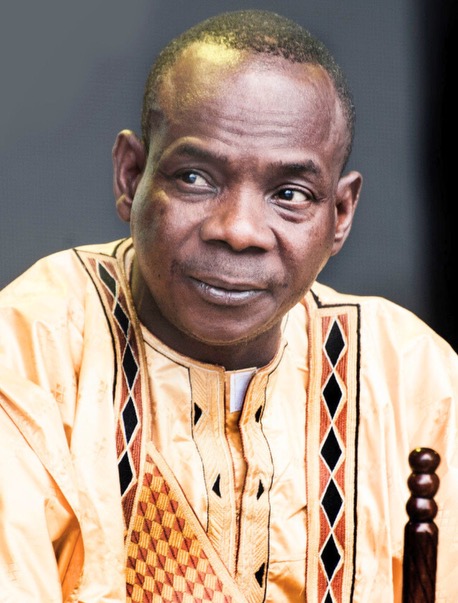The story of Queen Abla Pokou goes hand in hand with the creation of the Baoulé tribe of Côte d’Ivoire and is a reminder of the importance of the mother figure in this region and the entire Akan culture.

The Queen
Queen Abla Pokou was born a princess in the Ashanti kingdom of Ghana. She was the niece of the great King Osei Tutu, founder of the Ashanti Empire. In the Ashanti culture, succession is matrilineal. So when King Osei Tutu died, it was Dakon, the brother of Queen Abla Pokou who took power.
Unfortunately, disagreements after his nomination led to war and Dakon was killed. The Queen, fearing for her life, decided to flee the kingdom with her court. After walking for days and nights, they arrived on the shore of the Comoé River. River located at the border between Ghana and Côte d’ Ivoire. Knowing that these waters were very dangerous, they were confronted with a dilemma: cross or face death.

This is where the legend begins
The Queen looked at her wizard and asked if a sacrifice could be made to the genie of the river to create a crossing. The wizard replied that only an offering of what was most dear to them would convince the genie to create a route.
“Kouakou, my only child, forgive me. But I have understood that I need to offer you to the river for the survival of our people. More than a woman or mother, a Queen is first a Queen!”
The women of the court, including the Queen, took off all their jewelry for offering while the men gave livestock. The wizard stopped them and insisted that what was most dear was their sons.

The Sacrifice
At that moment, the queen untied her son from her back and said; “Kouakou, my only child, forgive me. But I have understood that I need to offer you to the river for the survival of our people. More than a woman or mother, a Queen is first a Queen!”. Then, without shedding a tear, she offered him as a sacrifice to the Comoé River.
Once the offering was made, a path appeared, allowing the queen and her people to cross. Some historians claim that a giant tree bent over to let the Queen and her people cross. While other versions state that a group of hippopotamuses lined up to make a path across the river.
Once they had crossed the river, the queen shouted, “BA OULI!” meaning “the child is dead”. From that point on, “Baoulé”, became the name of the people.


 EXCLUSIVE: Chat With Fally Ipupa On His New Video ‘Mayanga’ And How Collaborating With ‘The Garden Of Sisterhood’ Campaign Helped Bring His Vision To Life
EXCLUSIVE: Chat With Fally Ipupa On His New Video ‘Mayanga’ And How Collaborating With ‘The Garden Of Sisterhood’ Campaign Helped Bring His Vision To Life  YouTubers Explore Their Ancestral Home in Africa
YouTubers Explore Their Ancestral Home in Africa  Calabar Carnival: Nigeria’s Grandest Street Party
Calabar Carnival: Nigeria’s Grandest Street Party  Honoring the Legacy of Toumani Diabaté: A Maestro of the Kora
Honoring the Legacy of Toumani Diabaté: A Maestro of the Kora  Sidiki Diabaté’s Triumphant Return to the US: A Night to Remember in NYC
Sidiki Diabaté’s Triumphant Return to the US: A Night to Remember in NYC  Camidoh’s Incredible Rise: From Small-Town Ghana To Afrobeats Star With 1M+ Monthly Listeners
Camidoh’s Incredible Rise: From Small-Town Ghana To Afrobeats Star With 1M+ Monthly Listeners  Rock Icon Lenny Kravitz And Son Of Legendary Artist Fela Kuti, Seun Kuti, Come Together For New Afrobeats Album
Rock Icon Lenny Kravitz And Son Of Legendary Artist Fela Kuti, Seun Kuti, Come Together For New Afrobeats Album  DJ Cuppy Celebrates Ubuntu Pathways’ 25th Anniversary
DJ Cuppy Celebrates Ubuntu Pathways’ 25th Anniversary